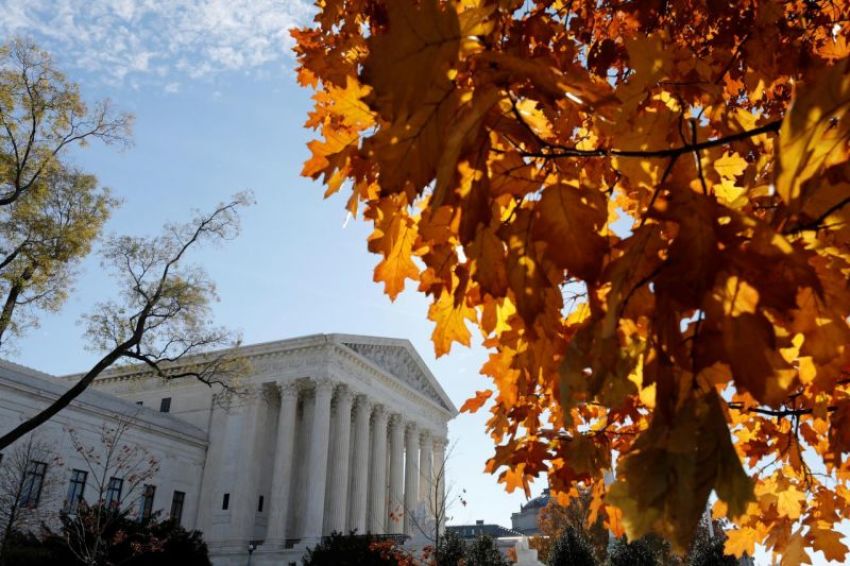Supreme Court weighs if race should factor in college admissions, hears affirmative action cases

The U.S. Supreme Court heard several hours of arguments on whether education institutions can consider race as one of many factors in determining student admissions, with both sides invoking concerns over discrimination and diversity.
The nation's highest court held oral arguments Monday in the cases of Students for Fair Admissions, Inc. v. University of North Carolina and Students for Fair Admissions Inc. v. President & Fellows of Harvard College.
At issue are race-based affirmative action policies for the two institutions, with SFFA arguing that these measures have led to discrimination against white and Asian students.
The academic institutions and their allies argued that the policies were necessary to help foster diverse campus communities, which would benefit minorities and the overall student body.
The high court first heard arguments on UNC's affirmative action policy. After a brief recess, justices heard arguments on Harvard's policy. For the latter, Justice Ketanji Brown Jackson recused herself, as she spent six years on Harvard's board of overseers, which often debated the school's affirmative action policy.
Some have speculated that the cases might lead to the overturning of the 2003 Supreme Court ruling in the case of Grutter v. Bollinger, in which a five-justice majority upheld a University of Michigan Law School policy that used race as a factor in admissions.
A majority of the Supreme Court justices concluded in 2003 that the Michigan policy was lawful because racial preference was only one of many parameters for admission.
The majority opinion authored by Justice Sandra Day O'Connor stated that "race-conscious admissions policies must be limited in time" and predicted that "25 years from now, the use of racial preferences will no longer be necessary to further the interest approved today."
During arguments for both cases, there was considerable debate over how long these schools will keep their affirmative action policies in light of the 25-year timeline mentioned in the 2003 decision.
Attorneys defending UNC and Harvard did not provide an exact date for when they would discontinue their policies, arguing that it would be dependent on various campus climate factors.
Justice Samuel Alito asked North Carolina Solicitor General Ryan Y. Park, who was arguing on behalf of UNC, if the UNC student body's racial makeup would "coincide almost exactly to the percentage of those racial groups in the general population," would Park believe that have "achieved diversity"?
Park said "no," adding that he did not believe that UNC needs "to reach those levels," but noted that UNC officials were "trying to comply" with Supreme Court precedent, "which require the minimum consideration of race on a holistic basis."
Justice Amy Coney Barrett then asked Park when consideration of race in the application process would end, invoking the Grutter decision's timeline.
Park replied, "we enthusiastically embrace the durational requirement," but "we don't think that the compelling interest in diversity will ever expire."
Jackson expressed concern during the UNC oral arguments that the rule advocated by SFFA attorney Patrick Strawbridge was that a school "can take into account and value all of the other background and personal characteristics of other applicants, but they can't value race."
"What I am worried about is that that seems to me to have the potential of causing more of an equal protection problem than it is actually solving," said Jackson.
As a hypothetical, Jackson asked if an applicant who wanted to go to UNC would have less chance of being admitted if their application spoke about a family history of slavery instead of a family history of attending UNC.
"As I understand, your no race-conscious admissions rule, these two applicants would have a dramatically different opportunity to tell their family stories and to have them count," she continued.
Strawbridge answered that "nothing stops UNC from honoring those who have overcome slavery," however, he critically asked if that is "a basis to make decisions about admission of students who were born in 2003?"
"And I don't think that it necessarily is," he added. "I don't think that the Equal Protection Clause suggests that it is."
Solicitor General Elizabeth B. Prelogar, representing the Biden administration in support of UNC and Harvard, argued that the policies were necessary to help prepare students for life in a racially diverse United States.
"A blanket ban on race-conscious admissions would cause racial diversity to plummet at many of our nation's leading educational institutions," Prelogar argued.
"Race-neutral alternatives right now can't make up the difference, so all students at those schools would be denied the benefits of learning in a diverse educational environment. And because college is the training ground for America's future leaders, the negative consequences would have reverberations throughout just about every important institution in America."
In recent years, SFFA filed challenges to the UNC and Harvard policies, only to have different lower courts reject both lawsuits.
In January, the Supreme Court agreed to hear the SFFA cases, with SFFA President Edward Blum saying in a statement he is "grateful" for the appeal.
"It is our hope that the justices will end the use of race as an admissions factor at Harvard, UNC and all colleges and universities," stated Blum earlier this year.



























